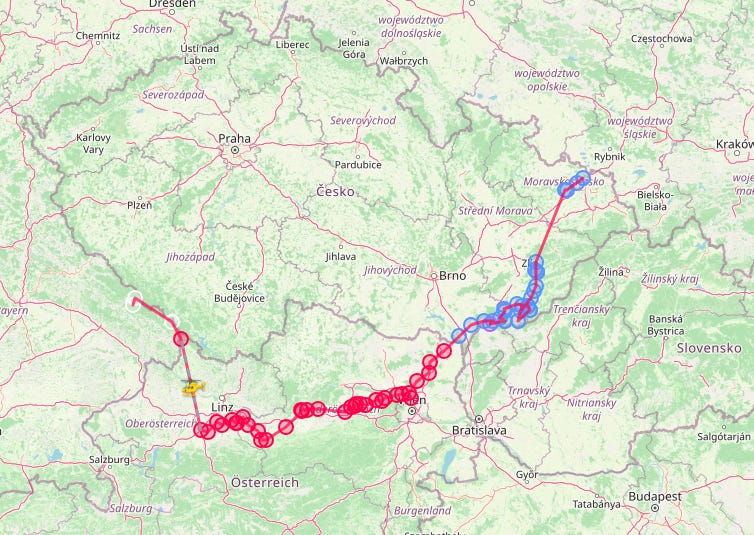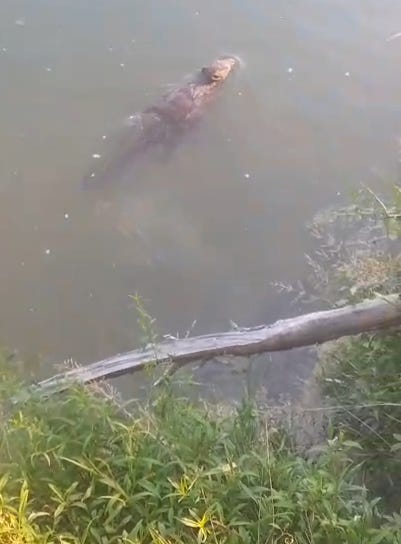Emil the Moose
Moose became extinct in most of Germany around 1000 CE, and in Bohemia, Moravia, Austria, most of southern Poland, and Hungary by the XV. century.
It’s not clear where exactly Emil comes from, but most likely from Poland, which has a large moose population in the northeast. In early summer 2025, he crossed the Czech border and wandered south through Moravia into Austria. He swam across the Danube near Vienna, then turned west. Along the way, he frightened the monks at Melk Abbey, and by the end of September he had passed Linz in Upper Austria. Much of his journey took him through densely populated and even industrial regions, such as Silesia and the Danube Valley.
Europe is rewilding. Sometimes it’s deliberate, as with European bison, other times it just a consequence of reforestation and a less polluted environment.
When I visit my mother in Bratislava, I already have to watch out for wild boars on my way home at night. While they mostly keep to the wooded areas during the day, at night you can meet them roaming in groups among the socialist-era brutalist apartment blocks.
This summer, I went for a swim in the Danube, right in the city. Suddenly, I realized that a large beaver was swimming alongside me. Next time, it might be a moose.
Farmers are perpetually complaining about wolves killing their sheep. And locals in the Romanian mountains are fearful of the growing population of bears.
There’s a special, innate slot for big animals in our brains. Young children are fascinated by stories about them, even if they never encounter them in the real world. It’s no surprise, then, that the return of big mammals looms large in people’s minds and does even become a polarizing electoral topic.
Nonetheless, the trend is here to stay and is unlikely to reverse anytime soon. All the species involved will have to find a way to live peacefully alongside one another, and that even in urban and industrialized areas.
But so far, political attitudes have swung between two extremes: “animals are fluffy” and “kill the vermin.” The technical and political solutions to this problem have been largely unexplored.





I wonder what drove Emil to make such a journey. Are Moose’s migratory?
Also, it’s interesting that France’s tree cover increased dramatically from 1300-1500.